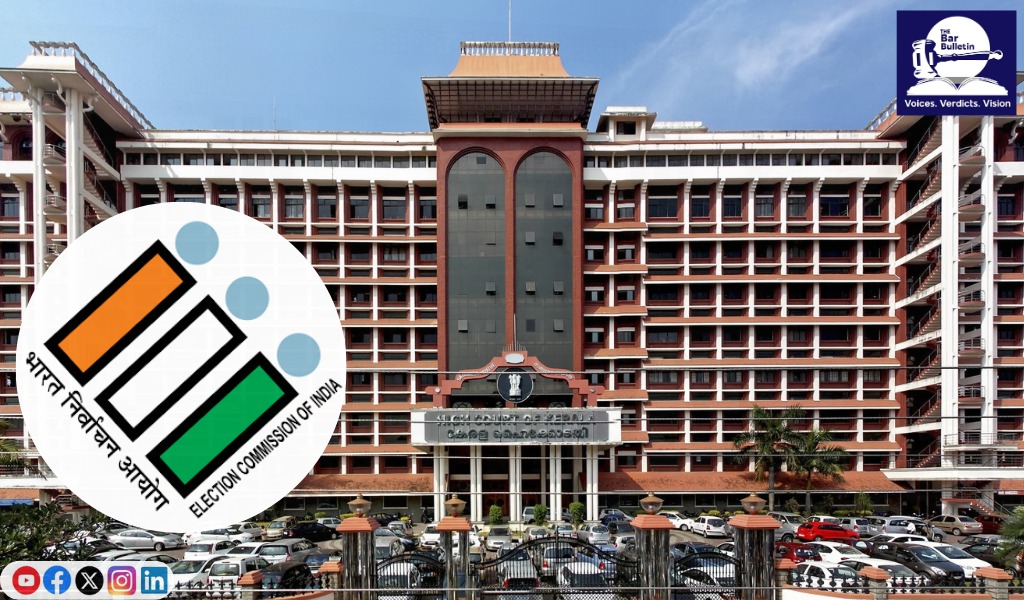The Kerala High Court granted an interim stay on the ECI order, preventing delisting of the petitioner party from the Register of Political Parties, enabling continued participation in local body elections.
The writ petition was filed by Kerala Congress (Skariah Thomas), a registered political party, challenging the ECI’s order delisting and marking it as a “DELISTED RUPP.” The ECI had delisted a number of parties, including the petitioner, from the Register of Registered Unrecognised Political Parties for not contesting parliamentary or assembly elections for six years. The party contended these actions were in contravention of Supreme Court precedents and statutory provisions. The case was grouped for hearing with similar petitions by other parties.
The party argued that this was based solely on their non-participation in Lok Sabha/Assembly elections for six consecutive years, which, according to the petitioner, is not a valid ground for deregistration under Section 29A of the Representation of the People Act, 1951. They maintained that members had contested recent local elections and that their party’s constitution does not stipulate contesting frequency as a registration condition. The ECI and State Election Commission were respondents.
Petitioners argued that the ECI lacks explicit deregistration powers under Section 29A. They also argued that ECI guidelines have no statute force and that only exceptional cases involving fraud or renunciation of constitutional principles justify deregistration. The ECI maintained it has broad powers to ensure transparency and party activity.
The Bench comprising Justice V.G. Arun observed that Section 29A does not grant ECI power for deregistration merely due to prolonged non-contestation in parliamentary/assembly elections. Moreover, it found that guidelines for party registration are not statutory and cannot supplant express legal provisions or Supreme Court precedent. The Court also noted that the delisting order was passed without sufficient hearing and clarified that ECI’s plenary powers are subject to judicial review and statutory limits.
The Court passed an interim order staying ECI’s delisting order, having found prima facie merit in the argument that Section 29A does not empower ECI to deregister parties simply for not contesting national/state elections. The order was passed to avoid prejudice during ongoing local elections, taking into account that election to the local bodies of the State had already been announced.
The order directed that the petitioner’s members could stand in local body elections with their allotted symbols (unless already allotted elsewhere), effectively reinstating their political rights until final adjudication. The date of next hearing was fixed on 5 January 2026.
Cases relied on:
Indian National Congress (I) v. Institute of Social Welfare, (2002) 5 SCC 685
Appearances:
For the Petitioners: E. K. Nandakumar, Senior Advocate along with M. Gopikrishnan Nambiar, K. John Mathai, Joson Manavalan, Kuryan Thomas, Paulose C. Abraham, Raja Kannan, Jai Mohan and Pooja Menon, Advocates
For the Election Commission of India: M. Ajay, Standing Counsel
For the State Election Commission: Deepu Lal Mohan, Advocate



